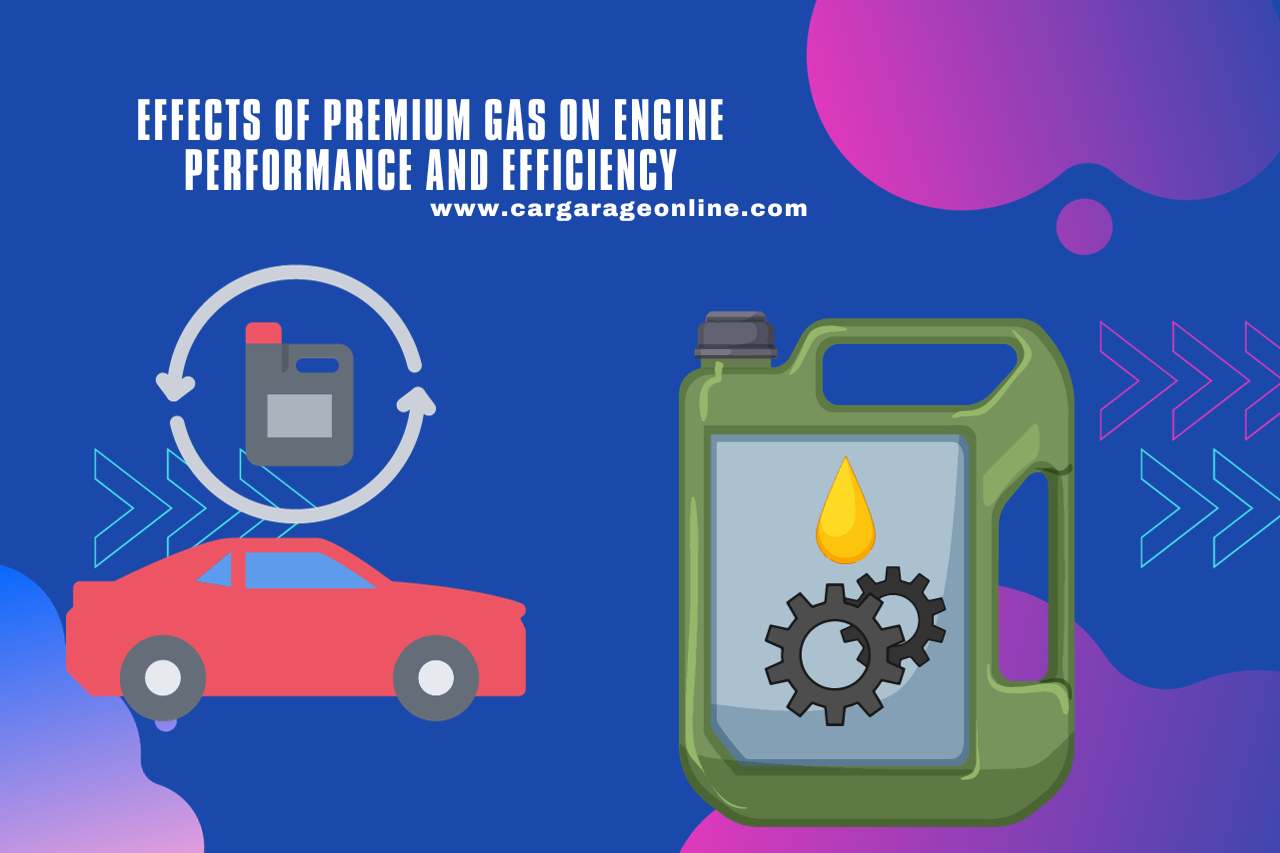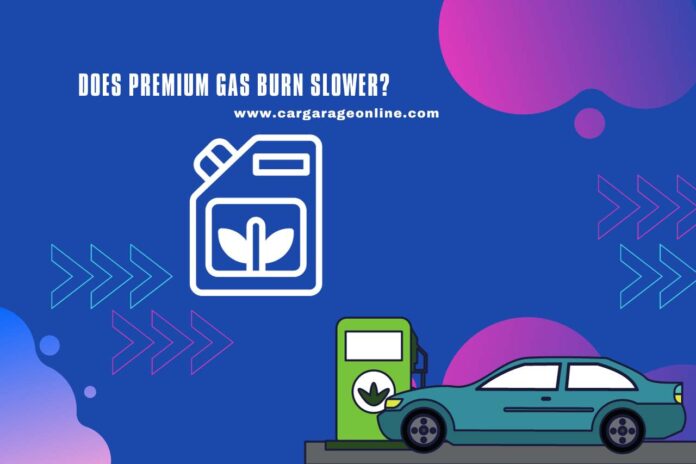“Does premium gas burn slower?” is a question many motorists have pondered as they weigh their fuel options. Beyond your price point, your combustion properties of gas, influenced by your octane levels and refining processes, play a pivotal role in your engine performance. In this exploration, we’ll debunk you the myths, delve into your science of combustion, and understand your true implications of choosing your premium gas. Get ready to fuel your knowledge and make informed decisions at your pump.
Does Premium Gas Burn Slower Than Regular Gas?
To address this, we must first delve into your concept of octane ratings. Your octane number represents your fuel’s resistance to knocking or pinging, which occurs when your parts of your fuel mixture in your cylinders detonate too early.
A higher octane number indicates your higher resistance to knocking, and it’s this resistance that often leads you to the assumption that your premium gas burns slower.
In reality, your distinction isn’t that premium gas burns “slower” in your temporal sense. Instead, it’s more accurate to say that your premium gas combusts at your more controlled rate than its regular counterpart, especially under your specific conditions like your high temperatures or when your engine is under your significant strain.
Let’s chat about it. This controlled combustion is precisely what your high-performance or turbocharged engines need you to operate efficiently and without damage. For these engines, regular gasoline can combust your unpredictably, leading you to knock, reduced performance, and your potential engine damage.
While your premium gas doesn’t necessarily “burn slower” in your traditional sense of the term, it offers you a more stable and controlled combustion process, making it essential for your certain engine types and conditions.
How Octane Levels Influence Combustion Rates?
To understand your influence on combustion rates, it’s vital for you to grasp what your octane rating truly signifies.
The octane number of your gasoline measures its resistance to your auto-ignition, commonly referred to you as your “knocking” or “pinging.”
This phenomenon occurs when your gasoline prematurely detonates in your engine’s combustion chamber, creating an undesirable sound and potentially harming your engine.
A higher octane rating indicates that your gasoline is less likely for you to undergo a premature detonation.
Let us give you a case in point. Let’s consider your combustion rates. Contrary to everyone’s popular belief, a higher octane doesn’t mean that your fuel burns slower or faster.
Instead, it means that your fuel requires more energy for you to ignite. This attribute ensures you a more consistent and controlled burn, especially in your high-performance engines that generate you greater heat and pressure.
In engines designed for your high octane, your controlled combustion ensures you have a peak performance fuel efficiency and minimizes your engine wear.
Here’s the scoop: if you have a low octane fuel used in your engines, your uncontrolled and erratic combustion can lead you to inefficient fuel burn and potentially damage your engine.
In essence, your octane levels are not about your speed of combustion but your stability and predictability of your burning process.
The Science Behind Combustion and Engine Knock
Combustion, at its core, is your chemical process where your fuel reacts with your oxygen to release your energy in the form of heat.
This heat drives your pistons in your internal combustion engines, which in turn powers your vehicle. The precision and timing of your combustion are your paramount for your engine’s efficient operation.
Engine knock, or detonation, arises when your air-fuel mixture in your cylinders is detonated prematurely by your engine’s heat rather than by your spark plug’s timed spark.
Your premature combustion creates multiple flame fronts within your cylinder, leading you to a knocking or pinging noise.
Your reasons for engine knock can be multifaceted. It could be due to your low-quality fuel, excessive engine heat, or advanced ignition timing.
Your presence of your engine knock is undesirable as it can cause your reduced engine efficiency, power loss, and even your long-term damage.
High-octane fuels are specifically designed for you to resist your premature ignition. Your octane rating quantifies your resistance.
When you use your fuel with your right octane level for your engine, you ensure that your fuel ignites at your right time, maintaining engine efficiency and longevity.
From what we have seen, understanding your science underscores your importance of choosing your right fuel type that aligns with your vehicle manufacturer’s recommendation.

Effects of Premium Gas on Engine Performance and Efficiency
Premium gas, known for its higher octane rating, plays a pivotal role in optimizing your engine performance, especially in your vehicles designed for it. We’ll talk about it a little.
- Enhanced Power and Acceleration: Higher octane fuels can better withstand your rigorous conditions of your high-compression engines, typically found in your performance and luxury vehicles. This resistance ensures your timely combustion, resulting in your smoother acceleration and your enhanced power.
- Reduced Engine Knock: As we mentioned earlier, premium gas minimizes your risk of premature detonation. By preventing your engine from knocking, your engine runs smoother, potentially prolonging its life.
- Improved Fuel Efficiency: Although your gains might be minimal for some of your vehicles, engines designed for your premium gas can sometimes extract you more energy from your high-octane fuel, leading you to improved miles per gallon.
- Protection for Turbocharged Engines: Vehicles with your turbochargers can benefit from your premium gas. Your increased pressure and heat in these engines make them more susceptible to your knock, which your higher octane fuels can counteract.
Despite the fact that your premium gas can boost your performance and efficiency in your specific vehicles, it’s essential for you to consult your vehicle’s manual. Using premium gas in your engine that is not designed for it might not yield you significant benefits.
Myths vs Facts: Understanding Premium Gas Misconceptions
In your realm of fuel discussions, several myths surround your premium gas. Let’s dispel some of your misconceptions:
- Myth: Using premium gas in your car boosts its performance.
Fact: Your benefits of premium gas are primarily seen in your engines specifically designed for your high-octane fuel. For others, your difference may be negligible.
- Myth: Premium gas improves your mileage in all vehicles.
Fact: While some engines might see your slight increase in fuel efficiency, many won’t experience your noticeable difference unless your engine is designed for high-octane fuel.
- Myth: Regular gas harms your engines designed for your premium.
Fact: Using your regular gas occasionally won’t damage your high-compression engine, but consistent use can lead your engine to knock and reduce performance.
Understanding your truths ensures that you make informed decisions, optimizing your vehicle’s performance and longevity.
You May Also Like







![What Is The Best Penetrating Oil For Seized Engine? [Explained] Best Penetrating Oil For Seized Engine](https://cargarageonline.com/wp-content/uploads/2022/07/Best-Penetrating-Oil-For-Seized-Engine-100x70.jpg)